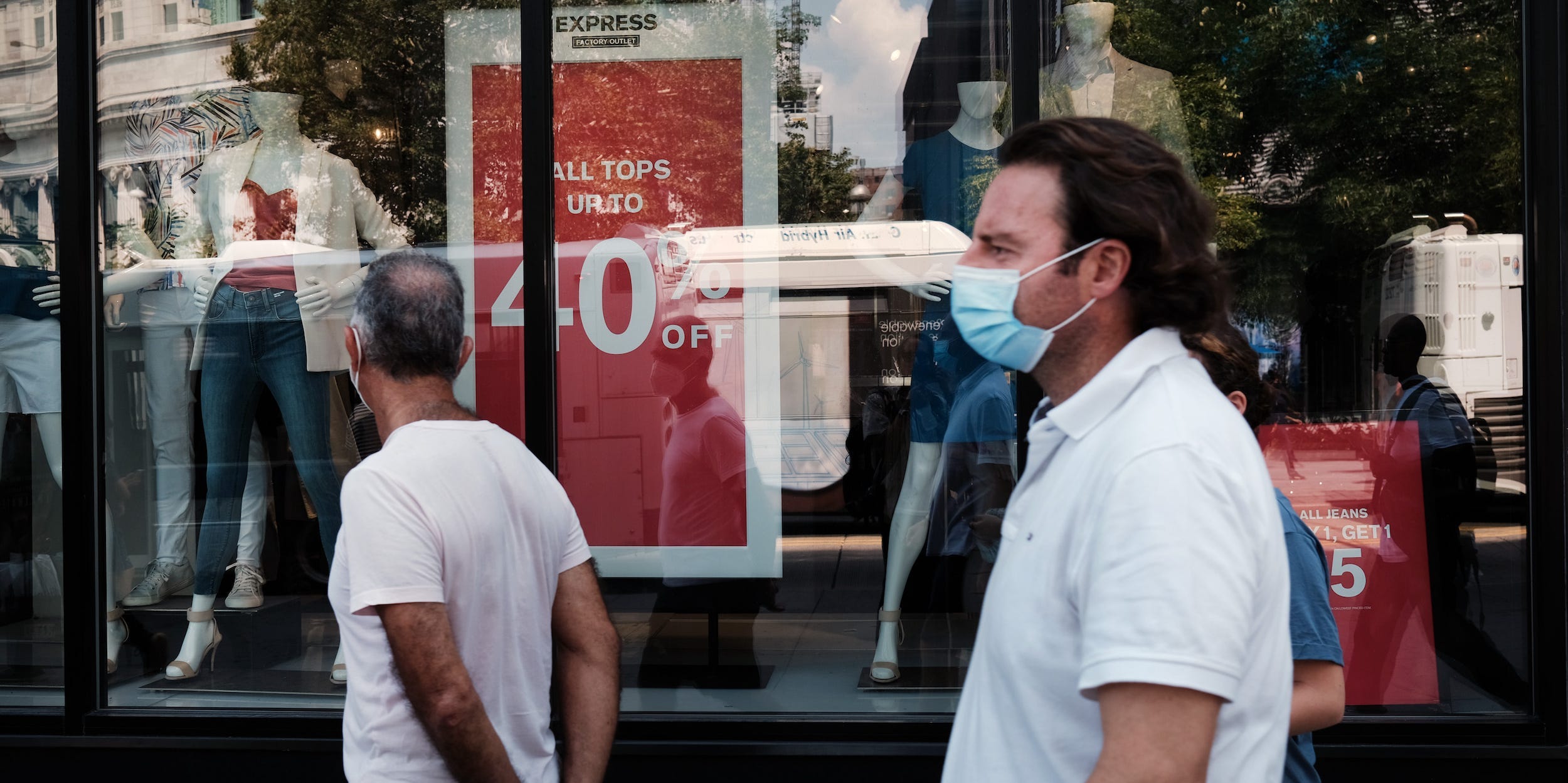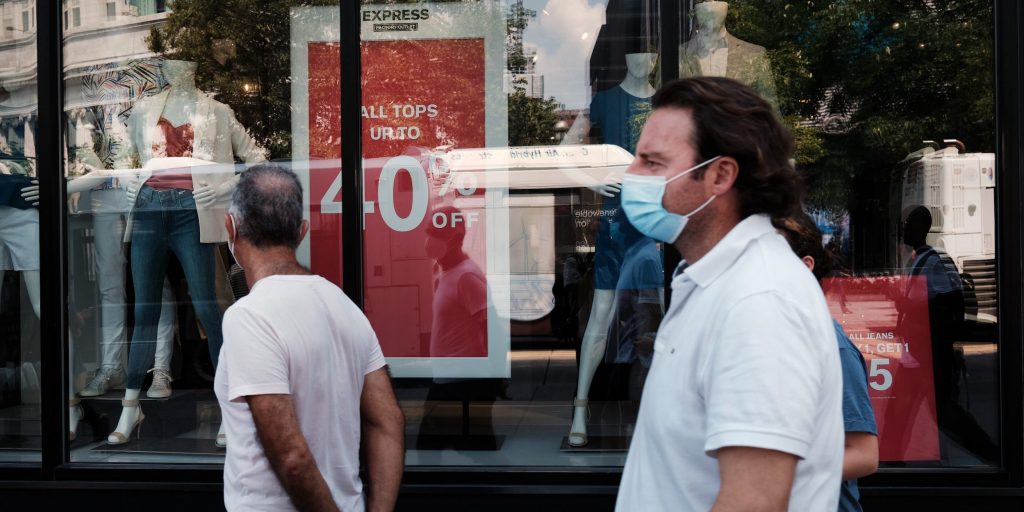
Spencer Platt/Getty Images
- The PCE inflation gauge rose 0.5% in June, showing prices continued to rip higher amid dire shortages.
- The reading exceeded a median estimate of 0.4%. The gauge rose 4% year-over-year.
- The Federal Reserve held interest rates near zero on Wednesday, signaling it isn't worried yet about rising prices.
- See more stories on Insider's business page.
Decade-high inflation continued into the summer as supply bottlenecks and massive demand fueled price increases in a handful of key sectors.
The Personal Consumption Expenditures price index – among the most closely monitored measures of nationwide inflation – gained 0.5% last month, the Commerce Department announced Friday morning. The reading exceeded the median estimate of a 0.4% increase from economists surveyed by Bloomberg. It also matched the May print of 0.5% growth.
On a year-over-year basis, the gauge rose 4%, matching the median estimate and marking the strongest one-year jump in the PCE index since June 2008.
Core PCE inflation, which excludes volatile food and energy prices, climbed 0.4% in June. That came in below the median estimate of 0.6%.
Inflation quickly soared to decade highs through the spring as the country reopened. Americans armed with fresh stimulus and pent-up demand spent big as lockdown measures were reversed. Supply chains, however, struggled to keep up, creating dire shortages across several product categories. That supply-demand mismatch has been the main culprit behind higher inflation and shown up most starkly in used-car, fuel, and airline-ticket prices.
The core PCE gauge is the inflation measure of choice for the Federal Reserve, which has indicated it will temporarily let inflation run above 2% year-over-year as the economy recovers. Fed Chair Jerome Powell reiterated during a Wednesday press conference that, should inflation rise to concerning highs, the central bank is also prepared to step in and cool price growth.
Fed still Team Transitory
The Fed elected on Wednesday to hold interest rates near zero and maintain its emergency asset purchases, signaling the latest inflation prints weren't concerning enough to prompt a policy shift.
Policymakers have argued the price surge will abate as the economy rebounds and supply chains heal. The absence of new policy action - and Powell's Wednesday remarks - reinforce the central bank's patience in waiting for the recovery to progress.
"Essentially all of the overshoot can be tied to a handful of categories. It isn't the kind of inflation that's spread broadly across the economy," the Fed chair said. "We look at that and we think that those are temporary things because the supply side will respond. The economy will adapt."
Powell's remarks follow a stronger-than-expected pickup in the Consumer Price Index, another popular inflation measure. The gauge rose 0.9% in June, trouncing the 0.5% forecast. Used-car prices drove a third of the increase by rising 10.5% through the month. The index also rose 5.4% year-over-year.

